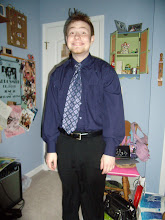Once we accept (N), or any other species of austere ontology, we are in need of an explanation. Everyday discourse seemingly makes use of a variety of objects, simple and composite alike. According to nihilism, though, these objects do not exist. What, then, is one saying with an utterance of 'The sun moved behind the trees'? There is no such thing as a sun, and no such things as trees. What is going on semantically?
There are three options available. First, one can say that such sentences are false. After all, 'sun' and 'trees' fail to refer to any object existing in the world. According to this position, the Error Theory on Everyday Discourse, much of what is said in ordinary conversation is simply false.
One would like to differentiate between sentences like 'The grass is green', in which something prima facie true is conveyed, and sentences like 'The grass is blue'. It would be a blow to the view if utterances of the above sentences always had identical semantic worth. A well-fleshed theory, then, will have to accommodate this with some "pseudo-truth" condition.
Another semantic position is to claim that utterances made in everyday discourse, while true, are not as immediately true as ones that make ontic claims reflecting the correct ontology. This is done through the Paraphrase Strategy. An utterance like 'The sun moved behind the trees' is true because it is shorthand for a claim about a complex collection of astronomical facts.
The last option is the Indirect Correspondence theory of truth, presented by Horgan and Potrc. According to this theory, 'The sun moved behind the trees' is true simpliciter. Unlike Paraphrase Theory, everyday discourse need not be reduced to claims about ontology. Truth holds even though there is no object to which 'the sun' refers; furthermore, there is no way to reduce such utterances to ones that do refer to ontologically pure objects.
Subscribe to:
Post Comments (Atom)

No comments:
Post a Comment